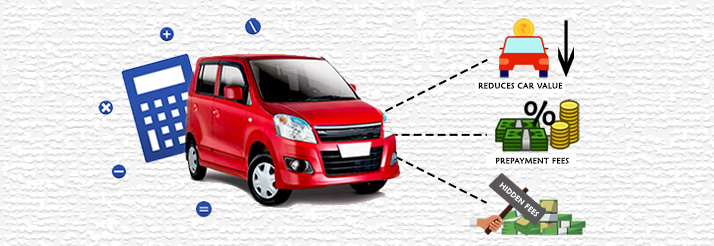Refinancing a car loan in “layman language” simply means to pay off existing car loans. The financial status of individuals or even the economy at large makes it difficult to clear out our debts totally, but sometimes to refinance car loans poses a wise thing to do. Now the question is, how to refinance your car if you have bad credit?
This article is aimed at proffering relevant solutions to refinance for bad credit and its benefits. Some of the important benefits of refinancing a car include:
- Break down your interest rate
- Lower your monthly loan payment
Break down your interest rate: Settling for a loan with a lower interest rate is the best idea if you intend to save a lot of money over time.
Lower your monthly loan payment: Having a monthly loan deficit that is higher than your payment comfort zone at the end of the month might go a long way in affecting your credit score, hence most likely leaving you with bad credit. The best thing to do is to opt for refinancing in the longer term, which will help lower your monthly loan payments. Not to keep you in the dark, having a longer payment plan usually means paying more interest during the loan lifespan.
Ideally, refinancing a car is the best idea for individuals. Still, traditional banks and lenders are out for profits, so considering that as an option may be bad for their business. However, it is not totally ruled out as some lenders may consider working with bad credit depending on their agencies’ factors.
This article is geared to serve as a walk-through step you can consider if you want to refinance your car.
Is it possible for you to refinance your car loan despite having bad credit?

Yes, refinancing your car loan even if you have bad credit is possible. Although, you may face certain difficulties in getting a lower rate if your credit has a hole and hasn’t improved since you obtained your original auto loan. Hence, a lower credit score is proportional to a higher interest rate.
Sometimes, you might be fortunate for auto loan rates to decrease from when you got your original loan. This means that you can get a better interest rate on refinancing your car. Examining historical data on average interest rates on a new car loan effectively tells if rates have improved. Having a higher interest rate for the month you obtained your original loan to the current rates. Then it is definitely a good time to consider refinancing for a lower interest rate.
Note: It is important we clearly state that “a new car rate is different from refinancing loan rates.” Historical data is a window to get a broad sense of the trend on auto loan interest rates over a defined period.
If by refinancing, you aim at getting a favourable lower monthly payment, then it means that you may need to extend your loan repayment term. We would like to emphasize that a longer repayment plan could impact the total amount you pay on interest over the length of your loan.
Below are laid out some steps that can help you find the best car refinance for bad credit that may suit your needs.
What credit scores do I need to refinance my car loan?

We all know that a credit score of 720 will do the magic. However, no defined minimum credit score qualifies a person for refinancing your car loan. It is a competitive market even for lenders, so every lender has their preferred lending requirements. Some lenders are skilled in stretching an arm towards people with bad credit. If you aim to obtain a lower rate refinance for a car, it helps if you have a better credit score than when applying for your original car loan.
Check your credit score
To avoid unnecessary hiccups and setbacks, you should check your credit score before seeking a refinance loan. You should take some time to thoroughly review your credit reports for any errors or incorrect information and immediately dispute those errors where necessary. Having inaccuracies and gaps in your credit report could negatively affect your credit scores, and in turn, puncture your possibility to qualify for a new loan.
Examining your credit report and knowing your credit scores would give you a heads up on what to expect before you opt for a refinance car loan. For accurate information on your credit report, you may check for your credit status through the TransUnion and Equifax platforms for free, or you can file a request for a free yearly report from any credit reporting agency of your preference.
Reach out to your current lender
Some people prefer the “run away from your problem” strategy, but before you opt for a new car loan lender to refinance your car, you should reach out to your current lender. If your loan situation looks good and you probably have an improved credit score, your current lender may be inclined to consider refinancing your car loan. Have it in mind that some lenders won’t consider refinancing their auto loans, but working with one lender if possible would be the best option for you to consider.
Shop around to find the best option

caranddriver.com 
Bank of America
Don’t be quick to settle for the first thing that comes your way. Regardless of whether your current lender is willing to refinance for a car loan or not, be open to exploring and look around for the best possible offer. An intense investigation and comparison should be carried out on available offers, as this may help you obtain the best car refinance that fits your credit status and budget.
Conclusion
In a nutshell, there are zero guarantees that you may be able to land yourself a refinance for your car with bad credit. Lenders work with what is favourable for their institution, and you can’t really blame them since they are business agencies, and profit is their ultimate goal. However, some lenders are hub on car loan refinancing for interested people with bad credit.






